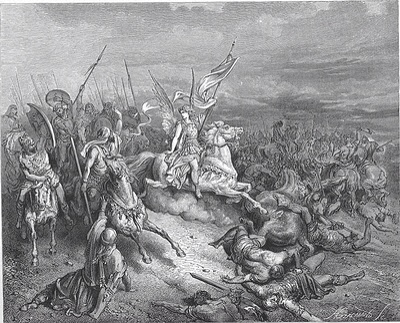Mythicists sometimes assert that an account like the Gospels, which features angelic interventions and other such details, ought to be set aside as fiction, rather than setting just the miracles aside and then sifting the rest for potentially useful historical data.
As I prepared to touch on the books of the Maccabees in my course on the Bible yesterday, it struck me that the same objection could be made about those works. They too feature angelic interventions and miracles. There are stories in them which probably have no basis in history, and stories in which there are deliberate echoes of earlier scriptural narratives. And yet historians conclude that they are not mere “historical fiction,” in the sense of fiction set against the backdrop of historical events – although some episodes within them are likely to fit that description. But taken on the whole, they are still closer to what was considered history in that time period. The speeches are not actual records of words delivered on those occasions, but rather the placement of appropriate words on the lips of those characters by the authors. But for the most part, key persons and events reflect actual historical persons and events.
The relevance of this to the question of the genre of the Gospels ought to be clear. The overall features of the Gospels most closely resemble these “hagiographic histories” that other Jews wrote and read around the same time period. They are works which need to be sifted critically in search of historical data, and never accepted uncritically. But they are not works written merely for entertainment purposes. They are works that aim to offer a theological interpretation of events, with more license taken in terms of invention than a modern historian should consider appropriate, but still rooted in things that actually happened.
I suspect the reason few mythicists seem aware of such considerations, or take them sufficiently seriously, is that (1) none of them have a background in the study of ancient Judaism, the most relevant area of expertise for someone investigating the historical Jesus, and (2) they instead draw mostly on dated scholarship from an era that witnessed strenuous efforts to ignore Jesus' Jewishness and to rip him free of that context.













